A great number of different people think that the word vegan means a great deal of different radical things, however the official definition – managed by The Vegan Society – is really quite rational:
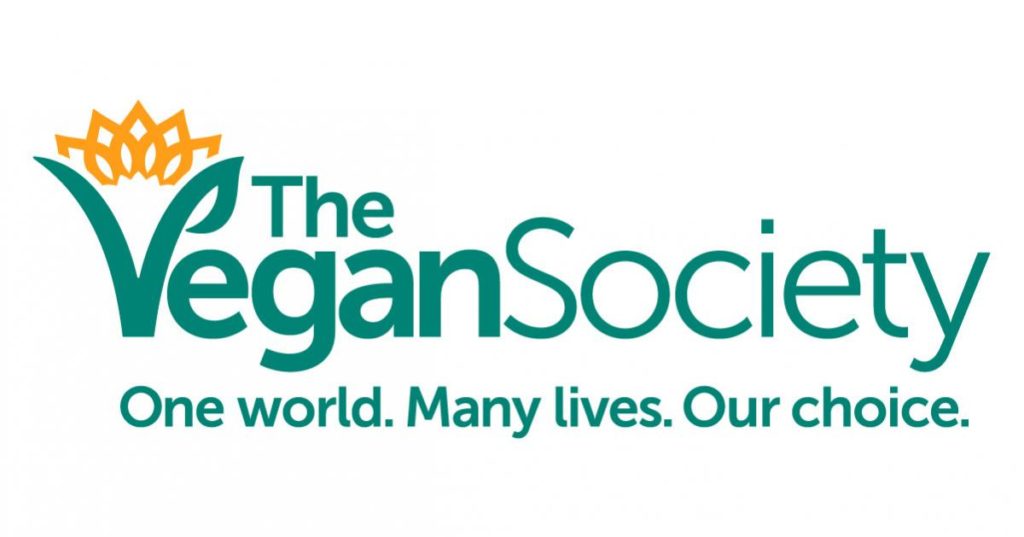
“A philosophy and way of living which seeks to exclude – as far as is possible and practicable – all forms of exploitation of, and cruelty to, animals for food, clothing or any other purpose; and by extension, promotes the development and use of animal-free alternatives for the benefit of animals, humans and the environment. In dietary terms it denotes the practice of dispensing with all products derived wholly or partly from animals.”
The definition of veganism tells nothing about the quality of food, clothing, animal-free alternatives, or other products a vegan person might choose. One can be vegan and consume cookies, cupcakes, ice cream, and soda, wear cheap, disposable cotton clothing, and utilize inexpensive plastic products in place of leather or fur. Some vegans are also reputed to be very unkind and even hostile toward many others humans.
There is an unhealthful and unsustainable way to express compassion for nonhuman animals through veganism. I propose that we extend our view further out and see how junk food, fast fashion, plastic, and animosity toward humans, especially nonvegan humans, harms animals including human animals.

The word wholesome is an adjective that means: 1) conducive to moral or general well-being; salutary; beneficial, 2) conducive to bodily health; healthful; salubrious, 3) suggestive of physical or moral health, especially in appearance, 4) healthy or sound.
I propose a shift toward wholesome veganism to include the following along with the established vegan ethic:
- a demonstration of compassion to self. We humans are animals. Compassion towards animals includes showing compassion toward ourselves. Let’s stop berating ourselves and berating others, especially those who don’t yet understand or embrace veganism and those who blatantly oppose veganism. This is the truest test of our compassion.
- a move toward eating whole plants instead of just plants. We vegans need to be well, vibrant, think clearly, and avoid mental sicknesses like depression, despair, and anxiety. Feeding oneself well is an act of compassion. Eating highly-processed vegan junk food is fun on occasion (vegfests, parties, holidays) however done too much can lead to heart disease, obesity, diabetes 2, cancer, auto-immune disorders, and mental illness. None of these chronic and largely avoidable diseases will attract new people to veganism or keep you well enough to be a longtime role-model, advocate, or activist.
- a move toward sustainable vegan fashion. Maybe we don’t need that 78th vegan message tee, the 12th vegan handbag, or the 25th cute vegan “pleather” pair of shoes. Fast vegan fashion, which is inexpensive and made from man-made materials, harms many human animals in the manufacturing process and pollutes the planet which puts all human animals and nonhuman animals in danger.
- a move away from plastic items and packaging. One of the many reasons I choose to live a vegan lifestyle is to reduce my negative impact on the planet and one of the hardest challenges I have is avoiding plastic materials like vegan polyurethane shoes or synthetic down and plastic packaging either in the form of a bottle (ketchup, rubbing alcohol), box container (hummus, cotton swabs), or bag (chips, bubble wrap). Every piece of plastic, including styrofoam, that has ever been created still exists somewhere in the world in some lousy state of slow decomposition. Covering the planet with petroleum-derived material is dangerous to the wellbeing of all animals including humans.
As if being just vegan wasn’t challenging enough in modern society where the status quo pushes back against lifestyle change, I’m adding layers of complexity. However if we are to take our commitment of compassion for animals seriously, we need to lengthen our sight of impact.
A Demonstration of Compassion to Self
I have been horrified by witnessing one vegan verbally cannibalize another vegan because they were not vegan enough. Remember, we can all improve. No one is done yet becoming vegan. There is no finish line or certification. Demonstrating compassion toward animals by definition includes extending kindness, understanding, and courtesy toward one another. We are animals. We are humanimals.
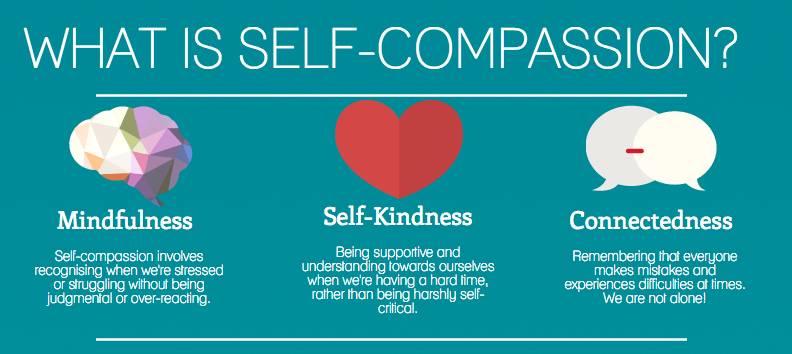
Whether in the vegan world or not, I believe that most people who spend time – especially online – criticizing other people are unhappy, unfulfilled people. To become a beacon of joy, gratitude, and compassion starts inevitably with how you treat yourself. Self-love and acceptance breeds tolerance and patience with other people. Life challenges each of us in different ways. All of us are a combination of good and bad choices and actions relative to the opinion of those bearing witness. We all make mistakes, we all have more to learn, and none of us possess the absolute truth on any topic.
There are many people whose livelihoods have been dependent on the exploitation of animals. A food system that slaughters, markets, and sells 70 billion land animals per year employs a lot of people. We have to show compassion toward these people and help create new systems that allow them the ability to afford to care about nonhuman animal wellbeing.
All vegan food is not automatically free of harm. Many people are exploited in the tomato, berry, chocolate, and coffee farming industries for example. We have to remember who is behind providing the plants we consume and take their wellbeing into consideration too as we aim to cause less harm toward nonhuman animals.
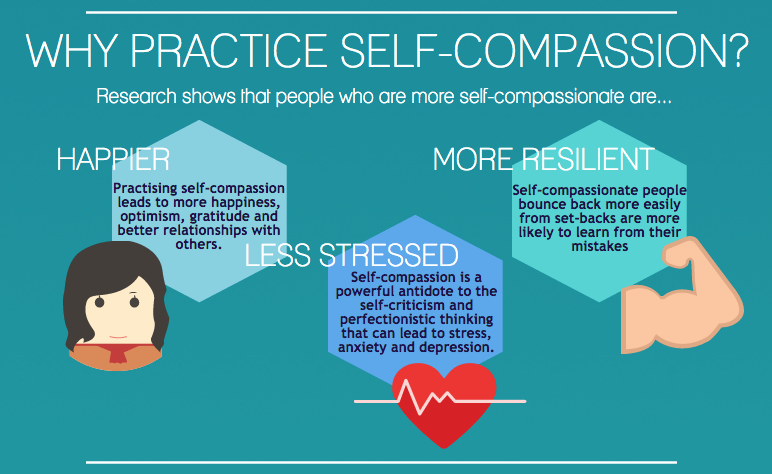
Be gentle with yourself, stay true to yourself, and be gentle with others. Shaming or attacking never encouraged anyone to do better in the moment. Shaming and attacking yourself never produces love to share. Being a wholesome vegan means being conducive to moral or general well-being for every living individual. Remember, all humans are animals including yourself. I’d like to edit the official definition to read:
“A philosophy and way of living which seeks to exclude – as far as is possible and practicable – all forms of exploitation of, and cruelty to, animals including humanimals for food, clothing or any other purpose; and by extension, promotes the development and use of animal-free alternatives for the benefit of animals, humans and the environment. In dietary terms it denotes the practice of dispensing with all products derived wholly or partly from animals.”
A Move Toward Eating Whole Plants Instead of Just Plants
There is an established and growing whole food, plant-based (WFPB) movement that has helped many people reclaim and protect their health from chronic illnesses. I am a part of that movement. However I see the movement being diluted and compromised by it not being by defined as plant-exclusive. Many people who still eat some meat, dairy, eggs, or honey claim the plant-based moniker. Technically their food is plant-based in that plants may comprise more than 75% of the plate.
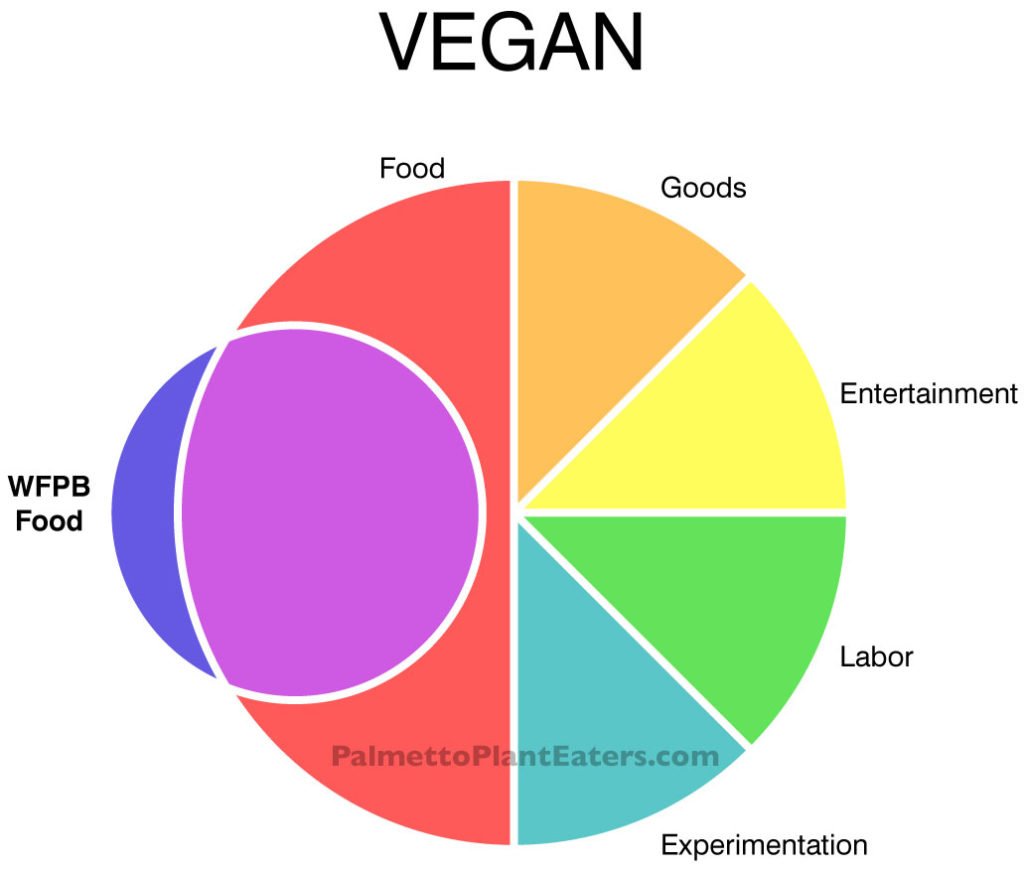
There is an ongoing war between vegans and plant-based or WFPB advocates. Vegans claim that veganism is not a diet. This is true in that veganism is not limited to just food choices. Instead it describes a total lifestyle. Vegans who see other people advocate for the consumption of plants while wearing leather want these people to talk about their food as being plant-based not vegan because veganism extends beyond the plate. Plant-based may describe the food vegans eat however it doesn’t always mean plant-exclusive. And plant-based doesn’t necessarily mean healthful food choices. Whole food, plant based does but it’s not automatically vegan. Oh what tangled webs of labels we weave!
It is possible to be vegan and plant-based.It is possible to be vegan and whole food, plant-based.It is possible to be plant-based and not vegan.It is possible to be plant-based and not whole food, plant-based.It is possible to be whole food, plant-based and vegan.It is possible to be whole food, plant-based and not vegan.
It is possible to be vegan and plant-based.
It is possible to be vegan and whole food, plant-based.
It is possible to be plant-based and not vegan.
It is possible to be plant-based and not whole food, plant-based.
It is possible to be whole food, plant-based and vegan.
It is possible to be whole food, plant-based and not vegan.
(You can click on the below chart to see a larger version.)
Personally I advocate for and practice a whole-food vegan diet and lifestyle. I eat exclusively from the plant kingdom. I would rather skip a meal than eat an animal or vegan junk food. I have one foot in the whole food, plant-based movement (it’s not plant-exclusive enough for me) and another foot in the vegan movement (it’s not whole food enough for me) and so I am standing in unity for wholesome veganism which would add a bit of detail to the official vegan definition:
“A philosophy and way of living which seeks to exclude – as far as is possible and practicable – all forms of exploitation of, and cruelty to, animals for food, clothing or any other purpose; and by extension, promotes the development and use of animal-free alternatives for the benefit of animals, humans and the environment. In dietary terms it denotes the practice of dispensing with all products derived wholly or partly from animals and including products derived exclusively from whole or minimally processed plants.”
A Move Toward Sustainable Vegan Fashion
Cheap vegan clothing, accessories, and adornment like make-up is fun because it’s abundant and affordable. One can put together a whole new look for each separate weekend with a modest budget. While these choices may not be harming nonhuman animals by avoiding leather, wool, silk, and animal-testing, they are hurting human animals, including yourself, and the planet.
Conditions in fast-fashion clothing factories and prisons is abysmal for workers. It is detrimental to their health and wages are at slave level.
Inexpensive vegan make-up and toiletries made from petroleum products, artificial colorings, artificial fragrances, and other toxic chemicals are a harm to you and those who make the products. Items that you rub, scrub, and paint onto your skin is skin food. Whatever chemicals are in the product are in your pores, your nose, and your lungs and impact your health. (Anyone care to join me in a secondhand sunscreen spray opposition campaign? Find me upwind at the pool and we’ll talk.)
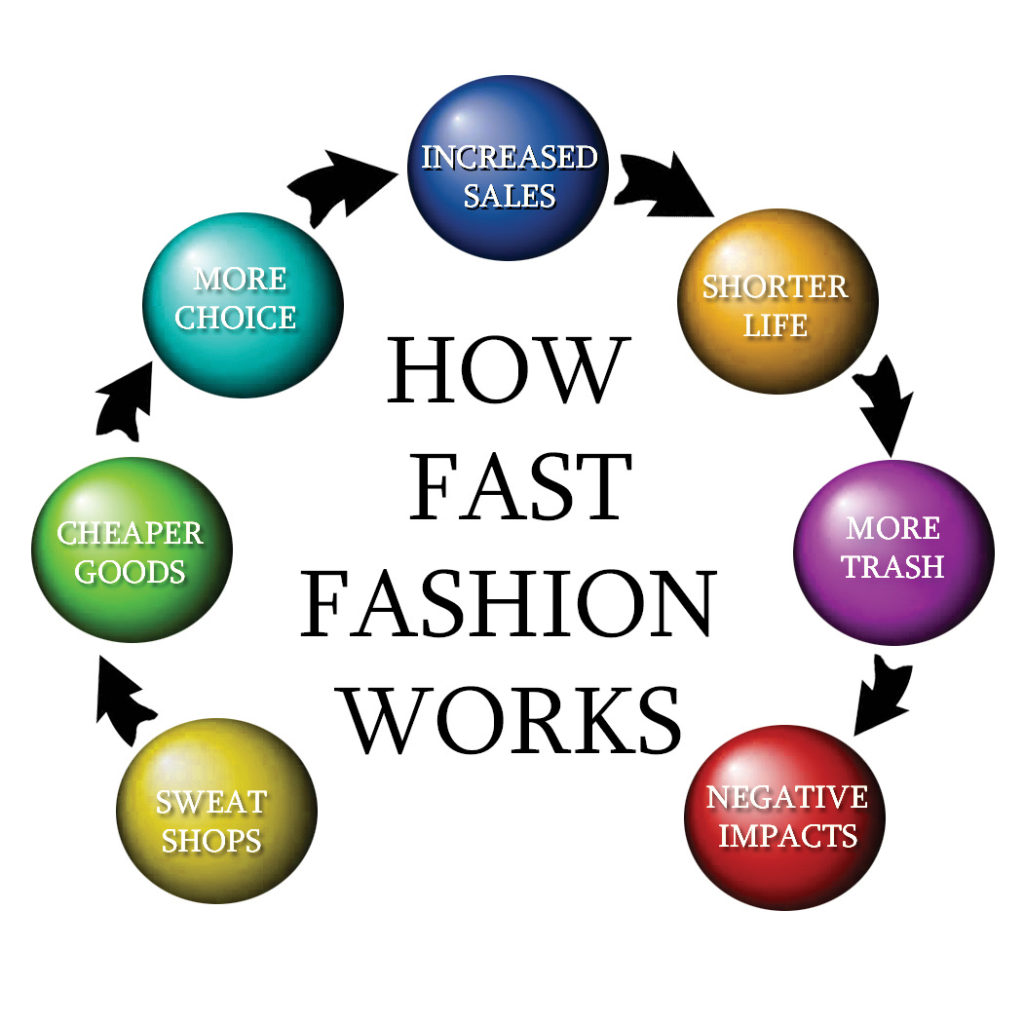
Rather than impulsively buy any new product with a vegan label, save your money for fewer, more carefully selected items from reputable brands. Consider that maybe less is more. Think of the long term ramifications of your health, those who work in factories, and the impact of these products being washed off down the drain and removed with wipes and cotton balls into the landfill. Shop for natural ingredient brands that are vegan and cruelty-free and bound to be more pricey…bonus for recyclable or compostable packaging! Wholesome veganism is conducive to bodily health – yours, others, and the planet. Rather than buy 5 cheap items, purchase 1 more expensive item that reflects wholesome veganism. Ideally the official definition would reflect this:
“A philosophy and way of living which seeks to exclude – as far as is possible and practicable – all forms of exploitation of, and cruelty to, animals for food, clothing or any other purpose; and by extension, promotes the development and use of non-toxic animal-free alternatives for the benefit of animals, humans and the environment. In dietary terms it denotes the practice of dispensing with all products derived wholly or partly from animals.”
A Move Away from Plastic Items and Packaging
I dream of the day when hummus is sold in glass packaging! When a person chooses wholesome veganism while avoiding single-use plastics in a town where there is no industrial composting facility, food and merchandise purchases become very challenging and, quite honestly, limited. However it is critical that we all focus more on our choices and pressure companies to reduce and eliminate plastic because smothering the planet – land and oceans – with plastic will kill us all regardless of species. Life on Earth for everyone is dependent on biodiversity.
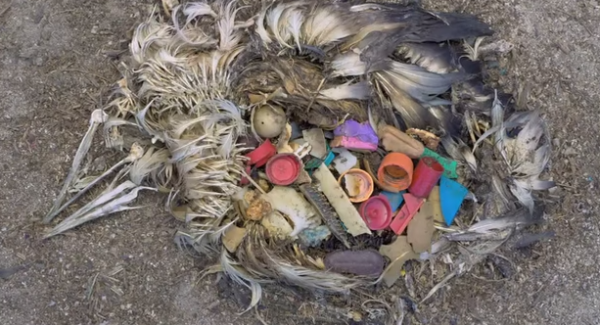
If you live where there is an industrial composting facility, please reduce your plastic consumption and make sure that the single-use plastics that you must use are compostable and placed in the composting bin. If you live in a town where there is not an industrial composting facility, reduce your plastic consumption and make sure that the single-use plastics that you must use are recyclable and placed in the recycling bin even thought there is no guarantee that these will be recycled due to an overwhelmed recycling industry. Putting compostable plastic in the trash destined for the landfill will do nothing but place a more expensive piece of plastic in the landfill. It won’t break down any faster than recyclable or non-recyclable plastic in the landfill.
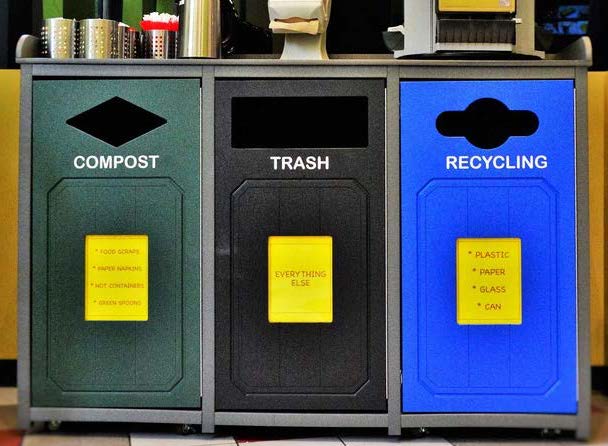
You know you live in a town where there is an industrial composting facility when you see three distinct bins in restaurants or grocery stores: Landfill, Recycling, Compost. Using compostable “eco-friendly” cups made from corn is pointless without the compost collection bins. Here comes the edit:
“A philosophy and way of living which seeks to exclude – as far as is possible and practicable – all forms of exploitation of, and cruelty to, animals for food, clothing or any other purpose; and by extension, promotes the development and use of plastic-free animal-free alternatives for the benefit of animals, humans and the environment. In dietary terms it denotes the practice of dispensing with all products derived wholly or partly from animals.”
Conclusion
I am making changes in my choices based on wholesome vegan ideals. Reducing my plastic use is top of the list. I’m buying more fruits and vegetables in season based on what is not packaged in plastic. I’ve started shopping secondhand online (OMG PoshMark). For me it’s not enough to just care about innocent animals and their immediate safety and wellbeing. I am actively caring about all human and nonhuman animals and our long term safety and wellbeing on the one planet we all share. This I term wholesome veganism. I hope you’ll join me in embracing a new enhanced definition:
Wholesome Veganism: “A philosophy and way of living which seeks to exclude – as far as is possible and practicable – all forms of exploitation of, and cruelty to, animals including humanimals, for food, clothing or any other purpose; and by extension, promotes the development and use of non-toxic, plastic-free, animal-free alternatives for the benefit of animals, humans and the environment. In dietary terms it denotes the practice of dispensing with all products derived wholly or partly from animals and including products derived exclusively from whole or minimally processed plants.”
What do you think?
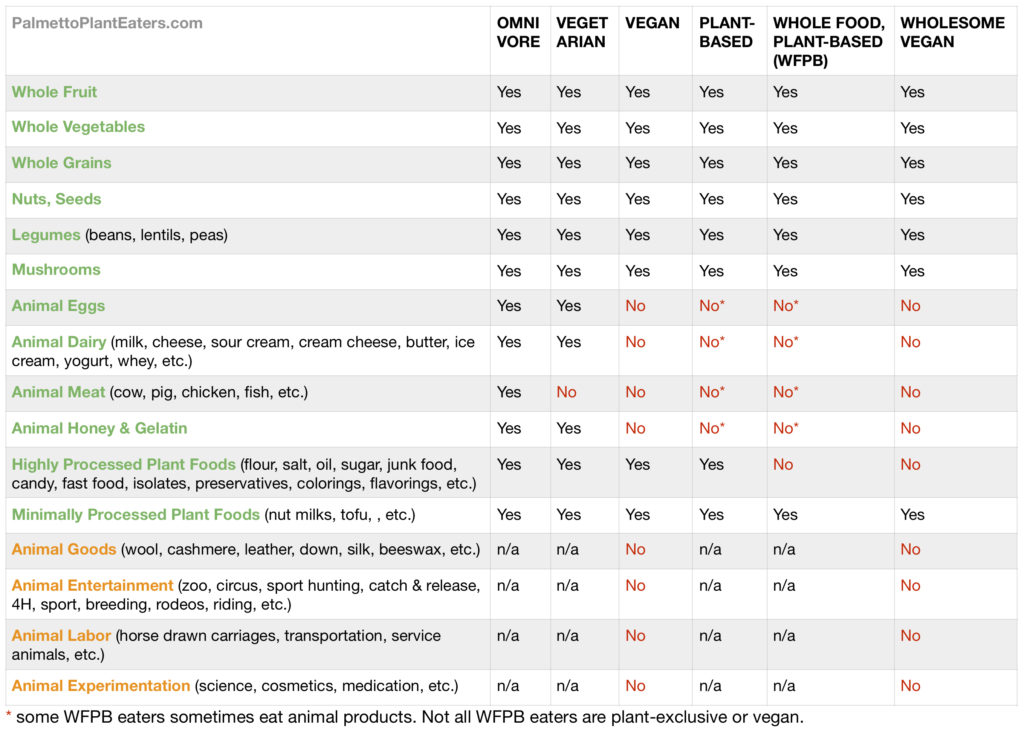

{ 5 comments… read them below or add one }
Vegan food is really amazing. Not only it has health benefits but also it is eco-friendly.
I also think the term Wholesome Veganism is a much better description for what most people who live a Vegan lifestyle is searching for….thank you for your contribution to our ever changing World….cause as we know only one thing is constant…and that is CHANGE!!!
Thank you Randy. I am glad you like the phrase!
I could not agree with you more! I have seen many people turn to being vegan as they see it as a popular fad with many popular celebrities becoming vegan and you are right about their artificial kindness towards animals while being perfectly rude and indifferent to fellow human beings. Observing a healthy lifestyle and live an environment friendly life definitely should be an integral part of veganism.
Aca Baranton recently posted..Managing your Pet’s Thunderstorm and Noise Phobias
This content is very helpful for me. Thanks for sharing